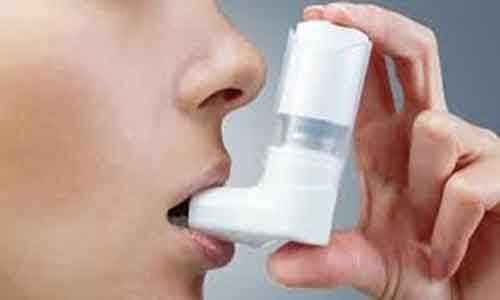- Home
- Medical news & Guidelines
- Anesthesiology
- Cardiology and CTVS
- Critical Care
- Dentistry
- Dermatology
- Diabetes and Endocrinology
- ENT
- Gastroenterology
- Medicine
- Nephrology
- Neurology
- Obstretics-Gynaecology
- Oncology
- Ophthalmology
- Orthopaedics
- Pediatrics-Neonatology
- Psychiatry
- Pulmonology
- Radiology
- Surgery
- Urology
- Laboratory Medicine
- Diet
- Nursing
- Paramedical
- Physiotherapy
- Health news
- Fact Check
- Bone Health Fact Check
- Brain Health Fact Check
- Cancer Related Fact Check
- Child Care Fact Check
- Dental and oral health fact check
- Diabetes and metabolic health fact check
- Diet and Nutrition Fact Check
- Eye and ENT Care Fact Check
- Fitness fact check
- Gut health fact check
- Heart health fact check
- Kidney health fact check
- Medical education fact check
- Men's health fact check
- Respiratory fact check
- Skin and hair care fact check
- Vaccine and Immunization fact check
- Women's health fact check
- AYUSH
- State News
- Andaman and Nicobar Islands
- Andhra Pradesh
- Arunachal Pradesh
- Assam
- Bihar
- Chandigarh
- Chattisgarh
- Dadra and Nagar Haveli
- Daman and Diu
- Delhi
- Goa
- Gujarat
- Haryana
- Himachal Pradesh
- Jammu & Kashmir
- Jharkhand
- Karnataka
- Kerala
- Ladakh
- Lakshadweep
- Madhya Pradesh
- Maharashtra
- Manipur
- Meghalaya
- Mizoram
- Nagaland
- Odisha
- Puducherry
- Punjab
- Rajasthan
- Sikkim
- Tamil Nadu
- Telangana
- Tripura
- Uttar Pradesh
- Uttrakhand
- West Bengal
- Medical Education
- Industry
High-Dose Vitamin D during pregnancy doesn't reduce Asthma risk in children

Starting early in 2000, research into role of vitamin D in conditions beyond bone health began to expand rapidly, and people started taking vitamin D supplements in hopes of warding off everything from heart disease to cancer. The science is finally catching up and role of Vitamin D in Asthma is being explored.
Vitamin D deficiency has been hypothesized to have contributed to the increase in asthma and allergies in westernized societies. Since asthma and wheezing illnesses begin very early in life, studies of prenatal and early-life risk factors are crucial.
Researchers have found that high-dose vitamin D supplementation during pregnancy did not reduce asthma or recurrent wheezing in children at 6 years of age.
The researchers had previously reported the results of a trial of prenatal vitamin D supplementation to prevent asthma and recurrent wheeze in young children, which suggested that supplementation provided a protective effect at the age of 3 years. This was followed in the children through the age of 6 years to determine the course of asthma and recurrent wheeze.
In that study, children born of mothers who received high-dose vitamin D had a nonsignificant reduction in asthma and recurrent wheezing (the primary outcome) at 3 years of age compared with those who received placebo-dose vitamin D (24% and 30%, respectively). Now, researchers report VDAART data after 6 years of follow-up.
There is speculation that vitamin D may play a role in the development of asthma and other allergic diseases. In the prior Vitamin D Antenatal Asthma Reduction Trial (VDAART; JAMA 2016; 315:362), pregnant women with risk factors for asthma (asthma, eczema, or allergic
rhinitis) were randomized to prenatal supplementation with high-dose vitamin D3 (4400 IU daily) or placebo-dose vitamin D (400 IU daily) starting at 10 to 18 weeks' gestation and continued through delivery.
The researchers aimed to determine whether, when maternal levels of 25-hydroxyvitamin D were taken into account, children born to mothers who had received 4400 IU of vitamin D3 per day during pregnancy (vitamin D group) would have a lower incidence of asthma and recurrent wheeze at the age of 6 years than would those born to mothers who had received 400 IU of vitamin D3 per day (control group). Time-to-event methods were used to compare the treatment groups with respect to time to the onset of asthma or recurrent wheeze. Multivariate methods were used to compare longitudinal measures of lung function between the treatment groups.
Among the 806 children followed until age 6, there was no difference in incidence of asthma or recurrent wheezing with high-dose versus placebo-dose vitamin D (44% and 46%, respectively) as well as no reduction in asthma, eczema, or allergic rhinitis.
The researchers concluded that Vitamin D supplementation during the prenatal period alone did not influence the 6-year incidence of asthma and recurrent wheeze among children who were at risk for asthma.
For further reference log on to:
Litonjua AA et al. Six-year follow-up of a trial of antenatal vitamin D for asthma reduction. N Engl J Med 2020 Feb 6; DOI: 10.1056/NEJMoa1906137
Dr Kamal Kant Kohli-MBBS, DTCD- a chest specialist with more than 30 years of practice and a flair for writing clinical articles, Dr Kamal Kant Kohli joined Medical Dialogues as a Chief Editor of Medical News. Besides writing articles, as an editor, he proofreads and verifies all the medical content published on Medical Dialogues including those coming from journals, studies,medical conferences,guidelines etc. Email: drkohli@medicaldialogues.in. Contact no. 011-43720751


